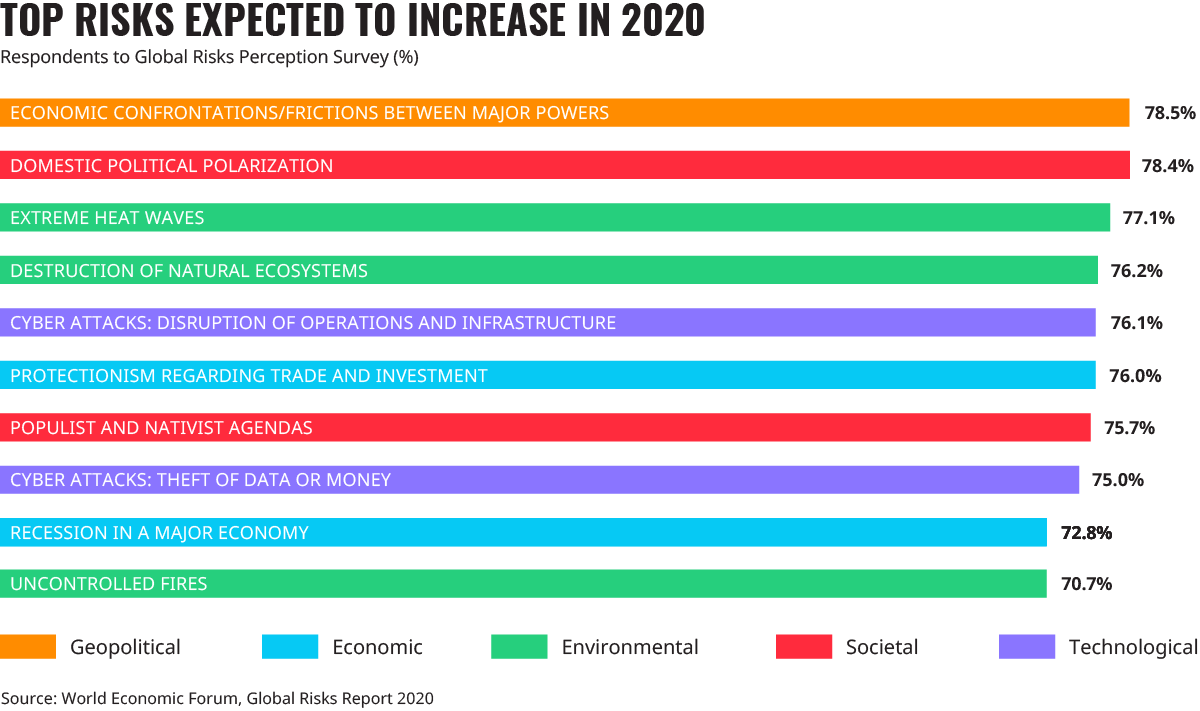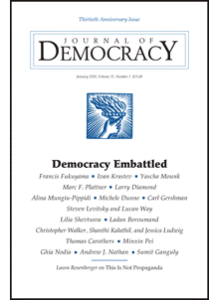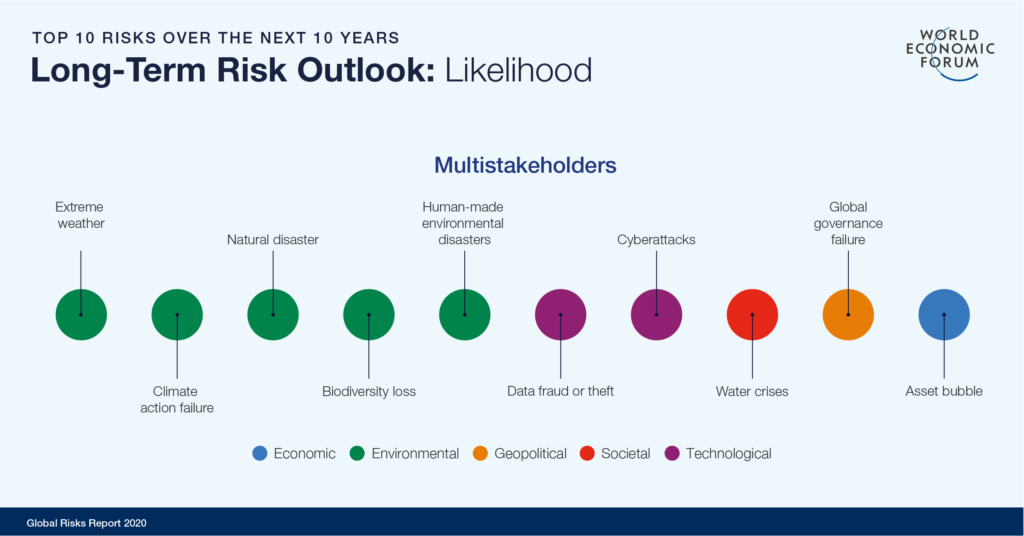
Populist politics and authoritarian resurgence will be growing risks over the next year, according to a new report. The risks posed by populist and nativist agendas will grow in 2020, say 75.7% of respondents to the the World Economic Forum’s Global Risks Perception Survey (GRPS).
Some 62.9% believe ‘authoritarian leadership’ will also be a growing threat while 60.5% fear more foreign interference in domestic politics.
While the open cyberspace has allowed the democratization of certain processes and increased access to information and data, growing opportunities for promoting falsehoods (accidentally and deliberately) have resulted in a gradual erosion of trust in media, social networks and even governments, says the World Economic Forum’s Global Risks Report 2020.
The Global Risks Perception Survey (GRPS), the World Economic Forum’s source of risks data, draws on the expertise of an extensive network of business, government, civil society and thought leaders. Both the GRPS and the Global Risks Report adopt the following definition: A “global risk” is an uncertain event or condition that, if it occurs, can cause significant negative impact for several countries or industries within the next 10 years.
In the survey, “protectionism regarding trade and investment” and “populist and nativist
agendas”—two major obstacles to the free flow of foreign direct investment (FDI)—were
rated as the fifth and sixth risks most likely to increase through 2020.
Rising populism Is one of the trends that have led observers to question Francis Fukuyama’s much-criticized thesis that liberal democracy is the endpoint of history, notes Yascha Mounk. The ongoing democratic recession and growing disaffection among citizens also pose new challenges to this view. Yet testing requires us to consider not only liberal democracy’s internal contradictions, but also those of its authoritarian rivals, he writes in the latest issue of the NED’s Journal of Democracy:
 Perhaps a growing share of citizens say that they do not care about individual liberty and collective self-determination—and are willing to vote for populist parties and candidates—because liberal democracy is far less able to fulfill the most pressing human desires than its partisans have long believed. Even after they lose their freedoms, the former citizens of liberal democracies might not bemoan their loss. But it seems just as plausible that the rise of authoritarian populists will eventually bring about a counter-reaction.
Perhaps a growing share of citizens say that they do not care about individual liberty and collective self-determination—and are willing to vote for populist parties and candidates—because liberal democracy is far less able to fulfill the most pressing human desires than its partisans have long believed. Even after they lose their freedoms, the former citizens of liberal democracies might not bemoan their loss. But it seems just as plausible that the rise of authoritarian populists will eventually bring about a counter-reaction.
Populist politics – space for democratic renewal?
Is the demos distinct from the populus? Is populism a necessary element of democratic politics? Is it a response to the failure of ‘liberal democratic’ capitalism or merely its perverse shadow? Is populism of necessity exclusionary and racist? Is the demos equivalent to the people? Do populist forms of politics open a space for democratic renewal? These are some of the questions to be addressed at a forthcoming UK conference – September 7, 2020 to September 9, 2020 – on the relationship between Democracy and Populism.








